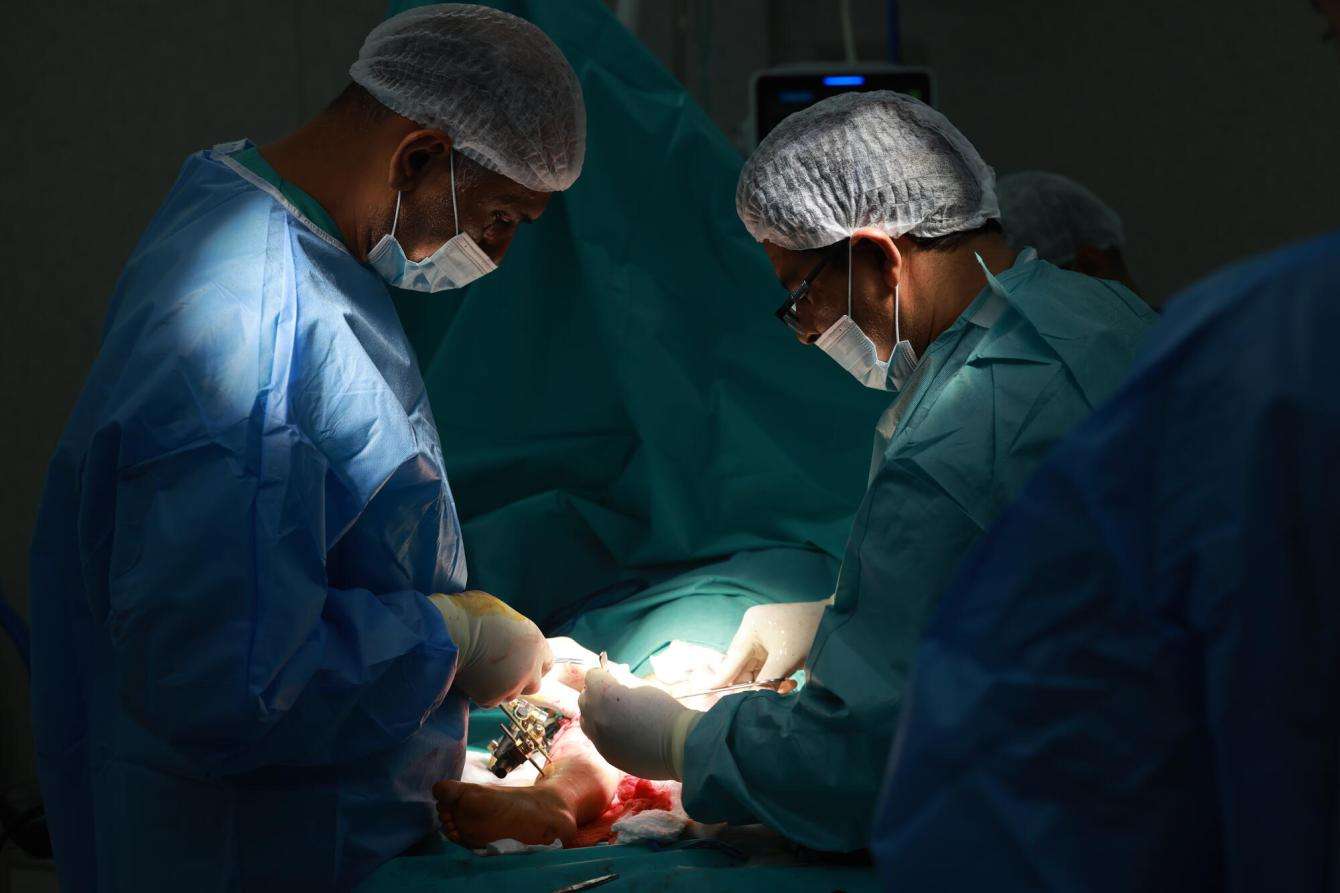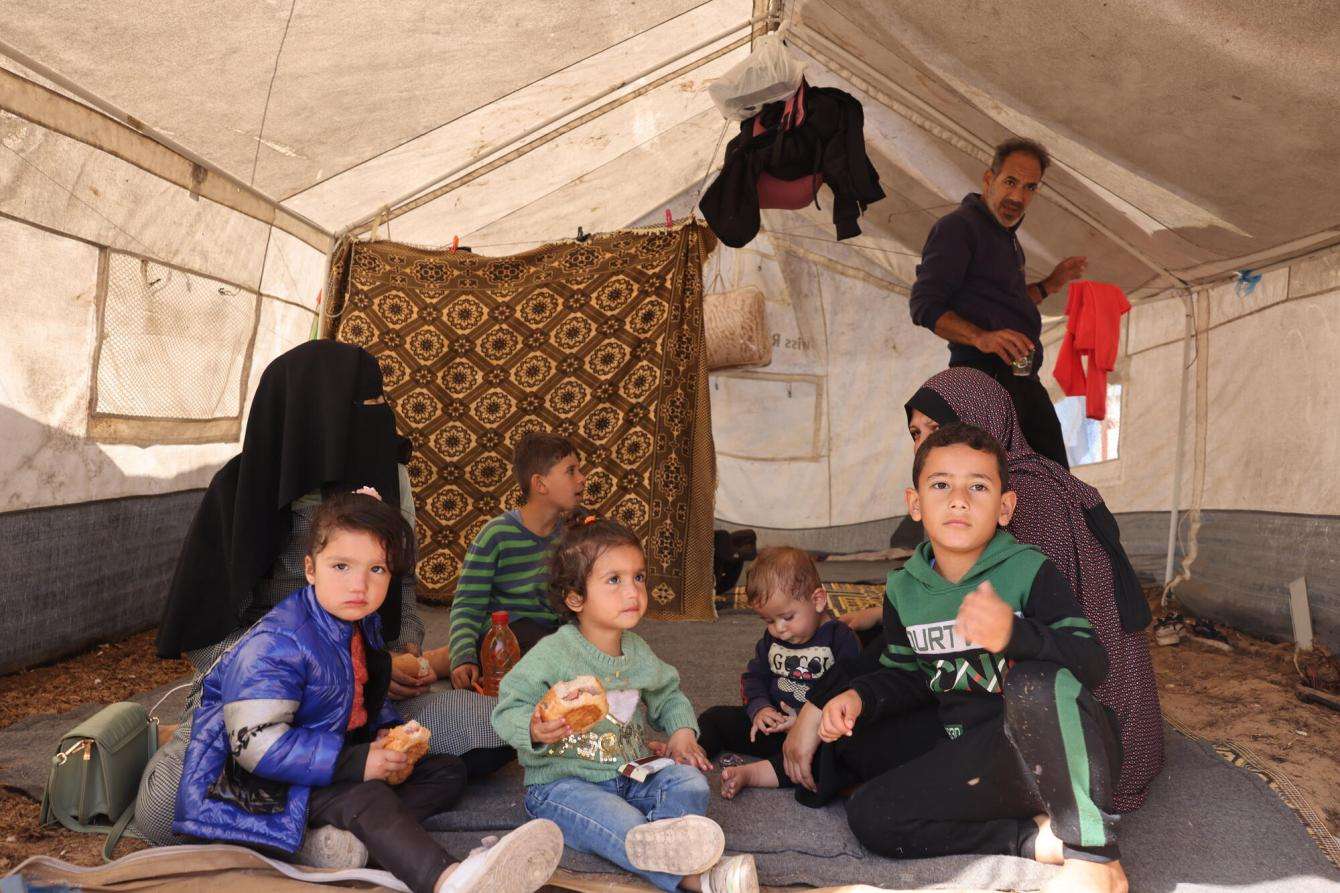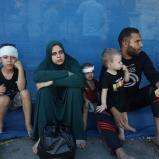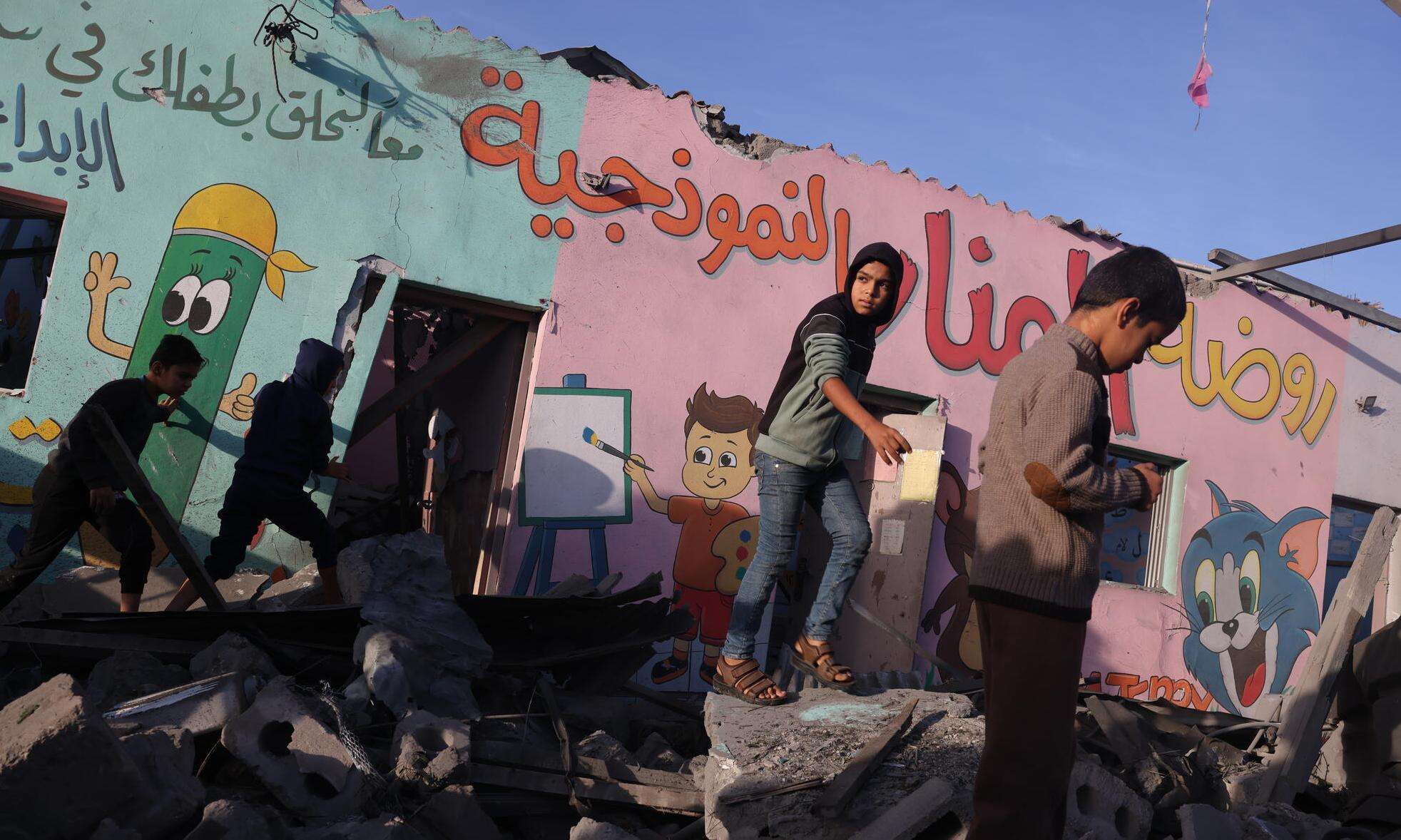Two months into the war in Gaza, Israel’s unrelenting, indiscriminate strikes have turned the north of the Strip into a pile of rubble. Now, Israeli forces are targeting central and southern Gaza with increasing brutality. The suffering of Palestinians trapped in Gaza can no longer be put into words.
Over the past 10 weeks, nearly 19,000 Palestinians have been killed in Gaza and over 50,000 injured, according to the Ministry of Health (as reported by OCHA), and the ongoing offensive continues to create hundreds, if not thousands, of new casualties each day.
Following Israel’s evacuation orders, the majority of Gaza’s 2.3 million people are now cornered in the south, which was supposed to be a safe zone. But ongoing strikes prove that nowhere is safe in Gaza.

The challenges of treating Gaza’s war wounded
At Nasser Hospital in the southern city of Khan Younis, where Doctors Without Borders/Médecins Sans Frontières (MSF) works, the dead and wounded have been arriving en masse almost every day since the short-lived truce ended on December 1. The severity of people’s injuries and the sheer number of patients have pushed Gaza’s health care system to a breaking point after its outright collapse in the north, where there is only one hospital still partly functioning, according to the World Health Organization.
“The emergency department at Nasser Hospital is completely full and new patients are being treated on the floor,” said Chris Hook, MSF’s medical team leader in Gaza. “Doctors are stepping over the bodies of dead children to treat other children who will die anyway. More and more temporary structures are being erected and tents are used as wards and temporary clinics. More hospital beds are desperately needed.”
Treating the war wounded is complicated because blasts from explosive weapons and collapsing buildings cause multiple, simultaneous injuries on many parts of the body. In Gaza, Israel’s complete siege makes it impossible to access essential medicines—including pain management medicines, which are critical in surgical interventions—and the medical tools needed to repair shattered and burned bodies.
“The lucky few that survive have life-changing injuries,” said Hook. “Many injured people suffer from extreme burns and major fractures that won’t heal properly and may go on to require amputations. Many of these patients, even if they can get back to something resembling normal life, will have severe chronic pain that will require substantial pain management as well. It would be a huge burden even on the most functional health care system, let alone for a system under intense pressure, like in Gaza.”

At Al-Aqsa Hospital in central Gaza, an MSF team has been providing emergency surgery and outpatient care. From December 1-11, approximately one in three patients (640 out of 2,058) were announced dead on arrival. On December 6, the number of dead arriving at Al-Aqsa Hospital surpassed the number of injured.
The hospital’s staff are struggling to maintain proper hygiene protocols to lower the risk of infections, but without essential supplies and equipment, this critical task is remarkably difficult. As the number of infections soars, it has turned into an additional medical challenge for both patients and overwhelmed health workers.
Infections soar amid lack of supplies
Civilians’ lives are at risk not only because of violent attacks but also wound infections resulting from the lack of access to important supplies and care.
“The risk of infection is incredibly high because of the conditions that people have to live in, and the fact that there just isn’t the ability to provide the long-term inpatient care that these patients truly need,” said Hook.
At the European Hospital, a small medical team from MSF recently started treating patients who were injured at the beginning of the war and whose wounds are now infected after going untreated.

Widespread hunger, infectious diseases, and lack of shelter
With only a few primary health care facilities currently open in the south, including the MSF-supported Al-Shaboura Clinic, there is little treatment available for infectious diseases like respiratory infections, diarrhea, chicken pox, lice, and scabies. These diseases can spread uncontrollably in overcrowded shelters, adding to the health risks for displaced Palestinians.
"As you go through the streets south of Khan Younis and near Rafah, you see temporary shelters expanding farther and farther as more and more people arrive," said Hook. "People struggle to find enough water to meet their hygiene needs."
Shelter for displaced people is another pressing need, as the newly displaced add to already high numbers of people living in desperate conditions.
“The living conditions among most displaced people are appalling, with temporary structures made of a few pieces of wood banged together and covered in plastic sheeting, without insulation from the earth or the concrete ground," said Hook. The flimsy shelters are now being battered by strong winds and heavy rain sweeping through Gaza.
Hunger has also become a serious issue. Following a World Food Program assessment, the deputy head Carl Skau confirmed that about half of all people in Gaza are "starving." And as more displaced Palestinians arrive in the south, food is becoming harder to find, and what little food is available is too expensive for many people to buy.
A brief respite before attacks resume
During the seven-day truce between Israel and Hamas in November, Nasser Hospital had a brief respite from receiving mass casualties. However, it instead saw large numbers of patients with chronic diseases like diabetes, who came to the hospital after being unable to access the medical care they needed during the active fighting.
This changed again when hostilities resumed on December 1, this time with even greater intensity. Since facilities became overwhelmed again with mass arrivals of war-wounded people, we don’t know what has become of these chronic patients, nor how they will be able to survive.
Attacks on health care must stop now
On December 1, MSF had to suspend its support to three health clinics in the south and reduce its presence in Nasser Hospital. On December 17, the maternity ward of Nasser Hospital came under fire, leaving one patient killed and others wounded. Attacks on health care must stop now.
What’s happening in the south of Gaza today seems to echo the approach of Israeli forces in the northern Strip: A scorched-earth policy that leaves no safe space for civilians, constant attacks and repeated evacuation orders for entire neighborhoods, and a continuing siege that has made it extremely difficult for people to access health care and for medical staff to provide it. It’s imperative to stop displacing people so the sick and the wounded can receive the care they urgently need.





